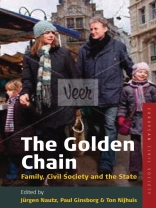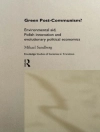The family can be viewed as one of the links in a “golden chain” connecting individuals, the private sphere, civil society, and the democratic state; as potentially an important source of energy for social activity; and as the primary institution that socializes and diffuses the values and norms that are of fundamental importance for civil society. Yet much of the literature on civil society pays very little attention to the complex relations between civil society and the family. These two spheres constitute a central element in democratic development and culture and form a counterweight to some of the most distressing aspects of modernity, such as the excessive privatization of home life and the unceasing work-and-spend routines. This volume offers historical perspectives on the role of families and their members in the processes of a liberal and democratic civil society, the question of boundaries and intersections of the private and public domains, and the interventions of state institutions.
Inhaltsverzeichnis
List of Tables and Figures
Acknowledgments
Editor’s Preface
Dieter Gosewinkel and Jürgen Kocka
Part I: Introduction and Overview
Introduction
Jürgen Nautz, Paul Ginsborg, and Ton Nijhuis
Chapter 1. Uncharted Territories: Individuals, Families, Civil Society and the Democratic State
Paul Ginsborg
Part II: Feminist Historical Views
Chapter 2. Gendered Boundaries. Civil Society, the Public/Private Divide and the Family
Karen Hagemann
Chapter 3. The Family, Civil Society, and Social Policy: a U.S. Perspective
Sonya Michel
Chapter 4. Feminist Mobilization and Family Change: a Case Study of a Grassroots Women’s Organization in Quebec
Anne Revillard
Part III: Family and Society in South and Western Europe – Case Studies
Chapter 5. Corporate Birthmarks of Civil Society: Kinship and Kinship Networks in Voluntary Associations, 1800–1848
Carola Lipp
Chapter 6. State, Society and Family Change in 20th Century Spain: the Evolution of the ‘Strong Family-Model’
Elisa Chuliá
Chapter 7. The Foundation of Civilized Society: Family and Social Policy in Britain and Italy between 1946 and 1960
Stefania Bernini
Chapter 8. Children and Civil Society
John Keane
Part IV: State and changing families in Eastern Europe and the Middle East
Chapter 9. The Failures of Modernity: Family, Civil Society and State in the Passage from Ottoman Empire to Turkish Republic
Ayşe Saraçgil
Chapter 10. Israel and Palestine through Family, Civil Society and State. An Overview
Marcella Simoni
Chapter 11. Gendered Boundaries between the State, Family and Civil Society – the Case of Poland after 1989
Elżbieta Korolcuk
Chapter 12. Family Structures and Civil Society Perspectives in Present-day Serbia
Dragica Vujadinovic
Notes on Contributors
Index
Über den Autor
Ton Nijhuis is the Scientific Director of the Duitsland Instituut in Amsterdam and Professor in German Studies at the University of Amsterdam. In 2009 he received the Alexander von Humboldt Forschungspreis.












